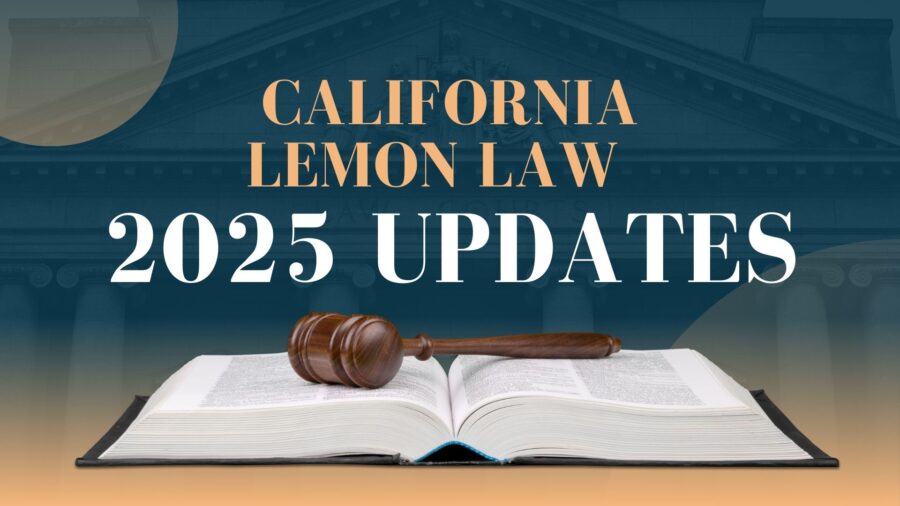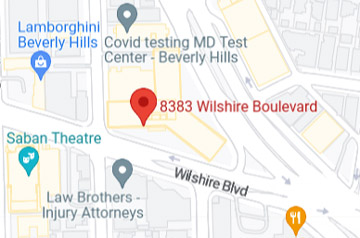
California’s lemon law has seen significant changes in 2025, primarily affecting the timelines for filing claims and the process for pursuing civil penalties. In 2025, significant updates through Assembly Bill 1755 (AB 1755) and Senate Bill 26 (SB 26) introduced new rules that were allegedly designed to streamline claims, reduce court backlogs, and create faster resolutions for consumers and manufacturers alike. The truth is, however, that AB 1755 was a ploy put forth by automobile manufacturers to weaken consumer protections and increase their bottom lines.
Key Changes in 2025
1. New Statute of Limitations
- Lemon law lawsuits must now be filed within one year after the vehicle’s express warranty expires, and no later than six years from the vehicle’s original delivery date. This creates a hard cap, regardless of how long the warranty lasts. Some manufacturers, such as Hyundai and Kia, offer 10 year / 100,000 mile warranties. Under the new statute of limitations, owners of these vehicles have no recourse if they experience defects while their vehicle is still under warranty. Under the prior law, consumers had four years from discovery of the defect to file a lawsuit. This is a major loss for consumers.
2. Pre‑Suit Notice Requirement (Effective April 1, 2025)
- Consumers must send a written notice to the manufacturer at least 30 days before filing a lawsuit.
- The notice must include:
- Your contact details
- Vehicle Identification Number (VIN)
- A summary of the issues
- A demand for repurchase or replacement
- The manufacturer has 30 days to respond and 60 days to fulfill the buyback or replacement.
- Under the prior law, manufacturers had an affirmative obligation to repurchase vehicles they knew – or should have known – were defective without any direct communication from the consumer. The new law enables manufacturers to simply ignore oral repurchase requests from consumers because they know consumers cannot fully enforce their rights without first sending the written notice.
3. Mandatory Mediation
- After the manufacturer responds, the case enters mandatory mediation:
- Mediation must be scheduled within 90 days
- Completed within 150 days
- Prior to mediation, most discovery (evidence exchange) is paused. This is another part of the law that reduces manufacturers’ legal obligations. Under the prior law, manufacturers were not entitled to any pause of answering questions, producing documents, and/or producing witnesses for complete depositions to substantiate their denials of consumer rights.
4. Early Document Exchange
- Both sides must exchange essential documents (repair orders, warranty details, pre-suit communications) within 60 days after the manufacturer responds to the lawsuit.
5. Penalties for Manufacturer Delays
- If a manufacturer fails to complete a buyback or replacement within 30 days of receiving a signed release, they can face additional penalties of $50 per day until the process is complete.
6. Manufacturer Opt‑In (SB 26)
- Manufacturers may opt in to the new procedures. Once elected:
- The decision is binding for five years
- Contact information for claims (email or mailing address, in English and Spanish) must be included in owner’s manuals, warranty booklets, and websites
- This opt-in procedure has essentially created a two-tier lemon law which has created more confusion for consumers, manufacturers and the court system. Different sets of rules apply to different manufacturers depending on whether they chose to opt-in to the new law. The fact that a party against whom the law is designed to protect against is entitled to choose whether it wants to follow it or not demonstrates who problematic the law really is.
Why These Changes Matter
While these reforms were allegedly aimed to speed up lemon law resolutions, reduce courtroom congestion through mediation, and hold manufacturers accountable with financial penalties for delay, the law shifted prior manufacturer obligations to the consumer, created stricter deadlines for case filings, and limited discovery tools consumers can use against manufacturers to properly enforce their rights.
Timely action and proper documentation are more important than ever. If you believe you have a lemon, don’t wait. Call the lemon law attorneys at the California Lemon Law Services today.







